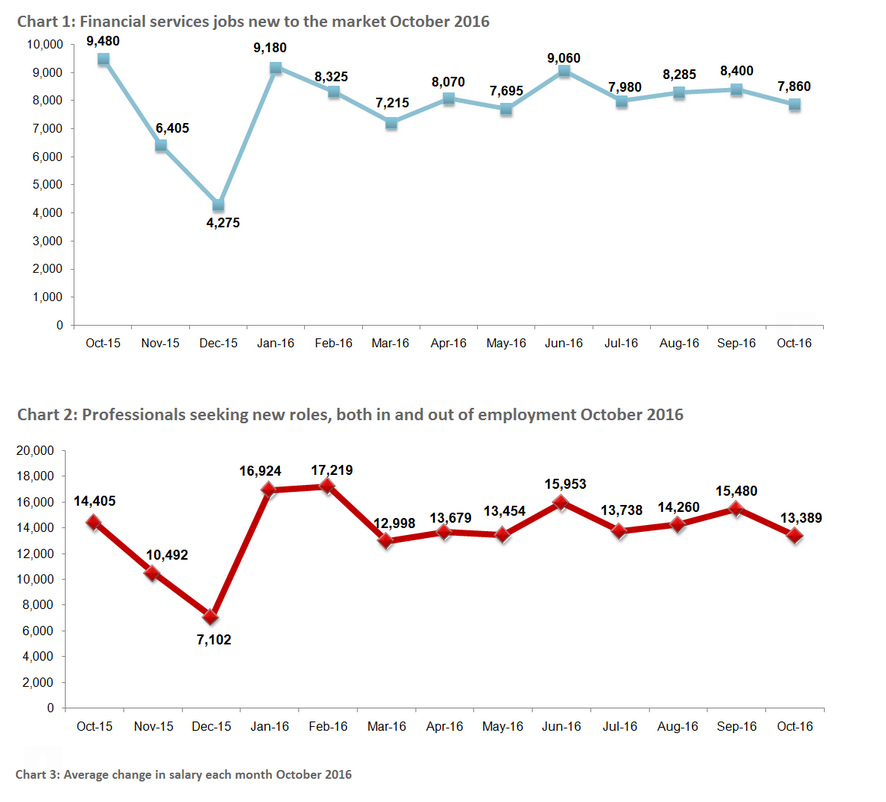No Exodus of London Financial Services Jobs to Europe, in Fact the Market is Looking Pretty Good

So far, so good for London's financial services sector which continues to defy expectations for a slowdown in hiring and an exodus of employees to Europe.
Morgan McKinley’s October employment report for London's financial services sector confirms an expected slowdown has not been nearly as bad as some had feared.
Although the month of October saw a 6% fall in new financial services jobs month-on-month and a 17% drop in new city jobs available year-on-year, this was not as bad a slowdown as had been feared following the vote for Brexit.
“With a mere 6% decrease in jobs month-on-month, October employment opportunities stand in stark contrast to the post-Brexit alarmist rhetoric,” said Hakan Enver, Operations Director of Morgan McKinley..
“There’s a tendency to blame everything on Brexit these days, so it’s encouraging to see that businesses haven’t stopped recruiting”, said Enver.
A 14% fall in professionals seeking jobs in October was a sign that jobseekers were becoming more cautious and were happier to sit tight and wait for their Christmas bonuses, said the report.
Despite a “charm offensive” from rival financial centres abroad, it appeared that relocations were still few and far between.
Enver cites linguistic and cultural gaps as the biggest relocation barrier for job seekers, and the City’s financial services infrastructure as the biggest relocation barrier for institutions themselves.
“The City’s resilience was not constructed overnight. October marked the 30 year anniversary of the so-called Big Bang, when the City of London was deregulated. In the thirty years since, London grew into an international financial services powerhouse. Many believe the infrastructure that came about in its wake have made the City Brexit-proof,” added the report
Loss of Passporting Greatest Fear
Nevertheless, the biggest fear to the city would be the loss of EU passporting rights, which allows companies to sell financial services uninhibited across the whole EU.
This would particularly hit the booming Fintech industry which relies on spreading its employment net to a wide pool of expertise from across the EU, as some specialist skills are in short supply.
US Election, impact of...
An increase in volatility in financial markets is expected to attend on the election of Donald Trump, especially up until more clarity about his policies crystallize.
It is in the performance of the stock market that the likely health of the financial services industry will be measured.
“The performance of the stock market between Election Day and Inauguration Day might be taken, in part, as a statement of investor confidence — or lack thereof — in the incoming administration.
“This means it’ll be all eyes on stock exchanges in the months leading up to the January changing of the guard in Washington,” said the report.
Change still pays, according to the report’s stats, which shows that professionals gained an average 17% salary boost as a result of securing a new job.
Nevertheless, the report suggested that relatively speaking this was not a sign that institutions were offering “extravagant” pay packages to woo new staff.




